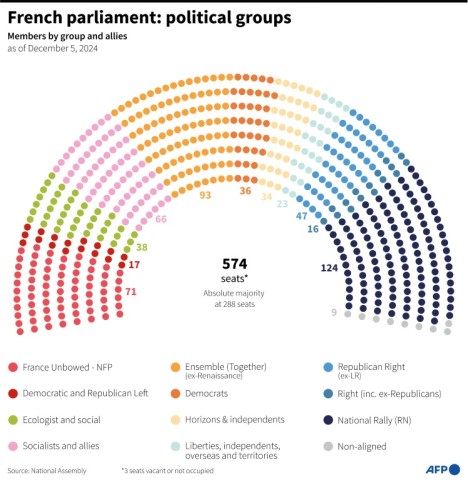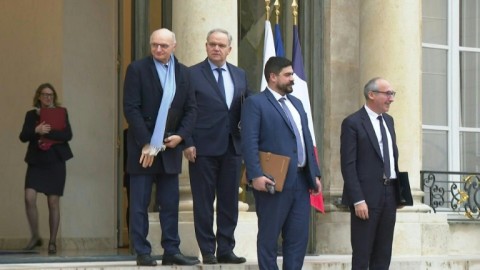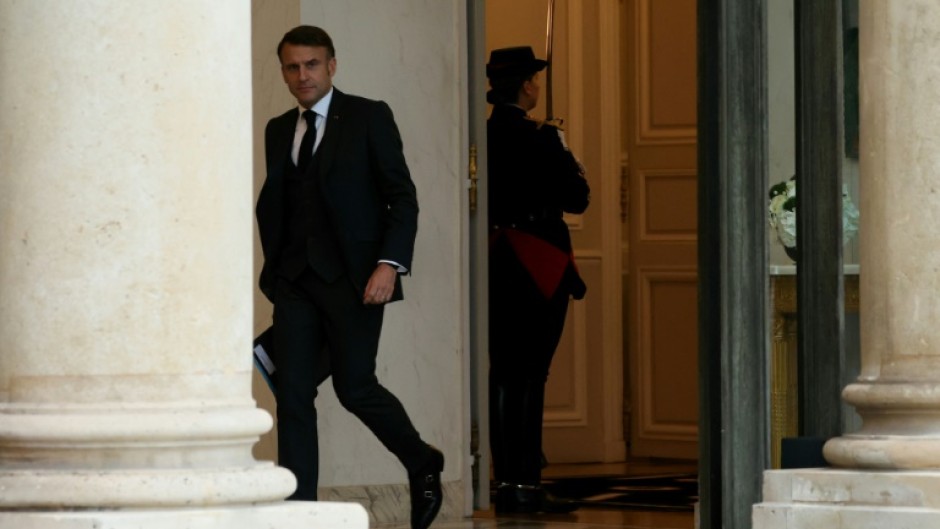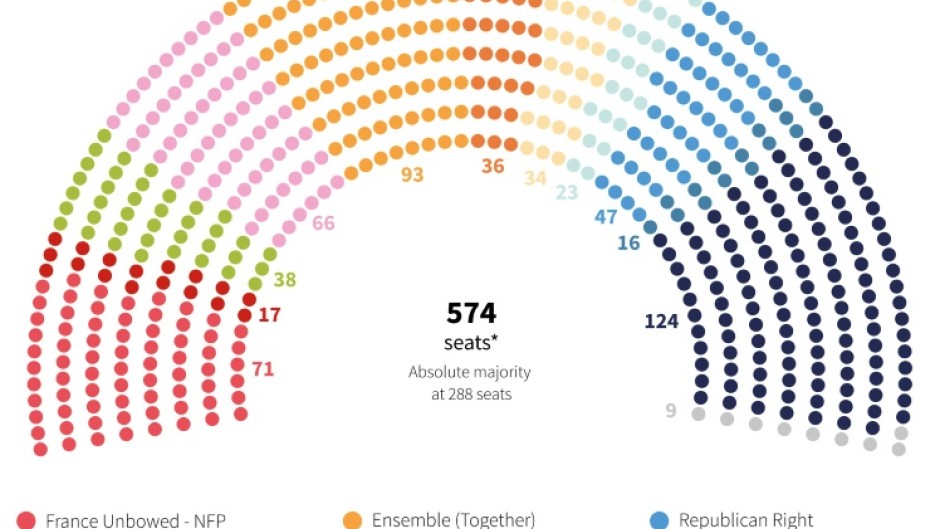French President Emmanuel Macron raced Wednesday to meet a self-imposed 48-hour deadline to name a new prime minister after he hosted party bosses in a bid to hammer out a consensus and avoid a protracted political crisis.
Following the ouster of the government of Michel Barnier in a historic no-confidence vote last week, Macron on Tuesday gathered leaders from across the political spectrum in a bid to form a "government of national interest".
The bosses of the far-right National Rally (RN) and hard-left France Unbowed (LFI), who joined forces to oust Barnier, were not invited.
Macron is under huge pressure to cobble together a broad alliance and form a government that can survive a no-confidence vote and pass a budget for next year in a bid to limit political and economic turmoil.
Macron, who is set to travel to Poland on Thursday, aimed to name a new prime minister "within 48 hours", said the party chiefs who had met him Tuesday.
Several people close to the president said the announcement could come as early as Wednesday evening.
Macron has hoped to prise the Socialists, Greens and Communists away from their election pact with the hard-left France Unbowed (LFI) but their bosses insist a new prime minister should be named from their ranks.
- Cabinet meeting -
Macron's centrist ally Francois Bayrou, a former justice minister acquitted in a trial this year on charges of embezzling EU funds, has been tipped by many as a possible contender for prime minister.
However, Socialist Party leader Olivier Faure spoke out against the candidacy of Bayrou, 73, who he said would embody a "continuity", whereas he wanted to see a prime minister from the left.

Other possible candidates include former foreign minister Jean-Yves Le Drian, who according to sources rejected an initial offer but is still in the frame, and current Defence Minister Sebastien Lecornu.
Maud Bregeon, spokeswoman for the caretaker government, said that Macron -- at what was Barnier's last cabinet meeting Wednesday -- had evoked the possibility of a non-aggression pact that would see parties commit to not bringing down the government.
"The country has neither the luxury of instability, nor the luxury of immobility," she said.
In a sign of tentative progress, the left has offered not to use the controversial Article 49.3 of the constitution to force through the legislation without a vote if one of its members is appointed prime minister.
In return, opponents would have to make a pledge not to bring down the government.
Macron also thanked the outgoing government, saying that last week's no-confidence vote was "a serious choice" that "would have consequences", according to Bregeon.
On Wednesday, a special budget draft law to allow the French state to keep functioning in the new year was presented to the Council of Ministers, said Bregeon.
The National Assembly will debate the bill on Monday and the Senate on Wednesday. Most parties are expected to back the legislation in the name of stability.
- 'Not unhappy' -
Last week far-right and hard-left lawmakers joined forces to oust the minority government of Barnier following a standoff over an austerity budget.
The French leader dissolved parliament in June after the far right trounced his alliance in European elections and called snap parliamentary polls that resulted in a hung parliament.
Some commentators said that bringing together so many parties for talks on Tuesday marked progress from Macron's attempt to reach consensus after the snap election.
Far-right leader Marine Le Pen, who emerged as kingmaker after the elections, told broadcaster France 2 she was "not unhappy not to have been invited".
An Ifop-Fiducial poll for Le Figaro Magazine and Sud Radio published on Wednesday indicated that Le Pen would win between 36 percent and 38 percent of the vote in the first round of the French presidential election.

The poll, carried out after Barnier's ouster, suggested Le Pen would obtain 36 percent of the vote against centre-right former premier Edouard Philippe (25 percent) and 38 percent against Barnier's predecessor Gabriel Attal (20 percent).
By Francesco Fontemaggi And Anna Smolchenko


